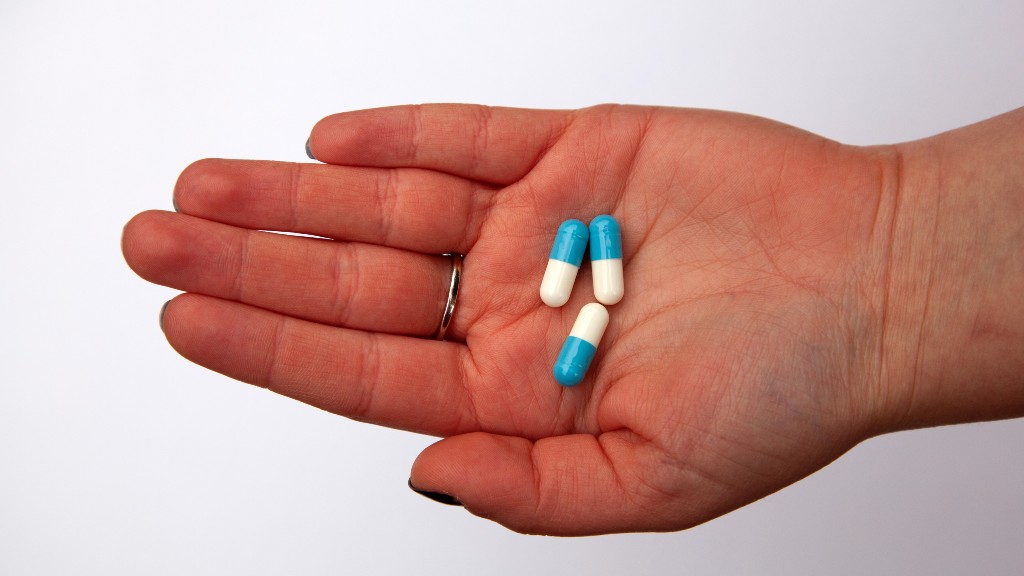Antibiotics misuse, a global health threat
Today, there are bacteria that are resistant to almost all antibiotics, says Dr Salvador MacipAlternatives such as the bacteriophages are still in the preliminary stages of research, so we must take care of the antibiotics we have and develop new ones

According to recent data, the number of patients infected by resistant bacteria is growing everywhere in the European Union, and antibiotic resistance has become a serious public health threat. 18 November is the European Antibiotic Awareness Day, an annual initiative that seeks to increase awareness of the threat posed by antibiotic resistance to public health and foster their proper use.
According to the expert and UOC Faculty of Health Sciences professor, Salvador Macip, who is also author of the book The great modern-day epidemics (in Catalan), the use of antibiotics is improving compared with recent years, but warned that "there is still misuse in certain countries and sectors". In particular, he cited the case of farm animals, advising that the use of antibiotics be restricted to "only those cases where they are needed".
The figures for Spain clearly show the improvement observed by Macip.
The data for 2019, analysed within the framework of the Spanish government's National Antibiotic Resistance Plan (PRAN), confirm the downward trend of recent years in the consumption of antibiotics in human health (-5.4%) and in the sale of veterinary antibiotics (-13.6%). The consumption of antibiotics in human health decreased by 11.8% between 2015 and 2019 and the total sales of antibiotics for veterinary use fell by 58.8% between 2014 and 2019.
Arguments for responsible consumption
To maintain this decrease in use, it is important that people should know and understand the reasons why antibiotics should be used responsibly. Macip explained that "the main consequence of antibiotics abuse or misuse is to accelerate the emergence of resistance". The researcher added that "bacteria are evolving continually and it is normal that they eventually acquire resistance to certain antibiotics".
The UOC professor reminded that "misuse of antibiotics in the past has led to resistance appearing earlier, to the point that there are bacteria that are resistant to almost all antibiotics". At the same time, there has been "a drop in investment by pharmaceutical companies in the development of new antibiotics, which has meant that our armamentarium is becoming more limited".
Antibiotic consumption has varied over time. Macip reminded that for many years, it was possible to buy antibiotics directly at the pharmacies without a prescription. "This led to people taking antibiotics for diseases that did not need them, for example, to treat common colds," he said. The fact that now people have to go to a doctor first has diminished the problem, "but there are still doctors who prescribe them when they aren't necessary," the UOC professor warned. Apart from incorrect prescription, there is another factor related with the fact that many patients "do not complete the entire treatment schedule, which also creates favourable conditions for the appearance of resistance". Macip also pointed out that the livestock industry has been using antibiotics abusively for many years, not to treat farm animal diseases but to prevent them and make animals fatten faster.
Addressing the dilemma
Many people are unaware of the consequences that antibiotic misuse may have. To increase awareness, Macip believes that it is necessary to work on several levels. On one hand, "people have to understand that antibiotics only work against certain types of disease and provided that they are used properly". On the other hand, "doctors must be told to only prescribe them when necessary and they should prescribe the most suitable antibiotic for what the patient has, and not always prescribe automatically the most powerful antibiotic". The researcher also pointed to the need "to improve legislation on the use of antibiotics in livestock farming", as this can also have harmful effects on people's health in different parts of the world. In fact, it has become one of the most pressing planetary health problems currently facing us.
"The problem is that there aren't many alternatives and antibiotics are very useful because they have enabled us to control a large number of infectious diseases," observed Macip. "They have prevented millions of deaths and have contributed enormously to increasing life expectancy since the mid-20th century," the expert underscored, while warning of the problems that may emerge if they become ineffective.
Bacteriophages, the alternative
However, this positive trend should not make us lose sight of the fact that "the appearance of resistance is a serious problem," said Macip. Although alternatives are being studied, such as the bacteriophages (viruses that kill bacteria), he continued, the research is still in the preliminary stages. "This means that we must continue to invest in the development of new antibiotics and look after those we have".
The emergence of antibiotic resistance is being closely monitored by the World Health Organization (WHO). The organization warns that antibiotic resistance accelerates with misuse and overuse of the drugs, and also points to deficiencies in infection prevention and control. The WHO believes that measures must be implemented at all levels of society to reduce this phenomenon's impact and limit its spread. The organization has warned that while some new antibiotics are in development, none of them are expected to be effective against the most dangerous forms of certain antibiotic-resistant bacteria.
Given the ease and frequency with which people travel, although COVID-19 has significantly reduced mobility, antibiotic resistance is a global problem and the WHO has appealed to countries and economic sectors to make an effort to prevent the problem from becoming more serious.
Experts UOC
Press contact
-
Editorial department
